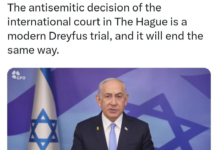In Kenyan police stations money can buy you justice, writes East Africa reporter Mohammed Kahiye. On the other hand, the fact that you’re innocent and the country’s constitution can’t regardless of your alleged crime.
The amount of the cash you have to pay to police chiefs to get your freedom back depends on your “crime,” whether it’s murder, drugs or even terrorism.
If you’re a Muslim and Somali in particular, you must pay what the area police chief demands without negotiation. Otherwise you will languish in jail before you’re taken to court on fake charges, mainly being in the country illegally, attacking police officers or being a member of a dangerous Somali gang.
Pangani police station in the Somali-dominated neighborhood of Eastleigh has hit both local and international headlines countless times before, not for positive reasons like maintaining law and order but for releasing its detainees for cash.
Kenyan Majority National Assembly leader Adan Duale described the station as “a supermarket” during a 2014 security operation to flush out terror in Eastleigh.
Pangani is well-known to the Somali community because if you haven’t been detained there yet you’ll find yourself there one day to help release a relative or a friend.
The government of Kenya has several times replaced the senior officials of the station to combat the deep-infested corruption there after complaints from the local community, but every newcomer seems to have the same disease as his predecessor.
Subscribe to our newsletter and stay updated on the latest news and updates from around the Muslim world!
This government facility is cursed day and night by Muslims and non-Muslims alike for hunting people for the wrong reasons instead of safeguarding residents and their property from harm.
Ten hours inside the Pangani jail
More than ten hours inside a small and unhygienic Pangani police cell was a great experience for me first as Muslim, and secondly as a professional journalist, to understand the real conditions which inmates face.
I was detained on Friday 14th at around 11:30pm at the entry of the building that I reside in in Eastleigh.
Two officers who approached me didn’t ask any questions but handcuffed me and my efforts to ask them why I was being detained fell on deaf ears.
On my way to the station, several detainees arrested along the way were released after buying their freedom with a little cash which I refused to offer when rude female officer asked me indirectly.
“Kijanaunatakakulalandaniyajela, nisawa,” which loosely translates as “young man, you want to spend the night in the cell? It’s okay.”

After a fruitless bargain for 1,000 Kenyan Shilling ($10) a Pro-box vehicle drove us to the police station.
More than ten hours inside the unhealthy detention facility wasn’t easy, but I can’t forget the new friends I made during this short period.
I was welcomed by kind inmates whom some said were there for months. The majority of them were Somalis who requested smuggled cigarettes or Khat, but I am neither a smoker nor a chewer.
I can’t fail to remember this young teenager who told me he spent six months in Shimo La Tewa prison in Mombasa and was detained in Eastleigh days ago in a police operation to get money from the residents.
Also how two old men – a taxi driver and another man, were talking about international politics in such a way that it symbolized the despotism inside the prison. The two talked about the execution of Saddam Hussein by the Americans, the killing of Col. Gaddafi and the death sentence imposed on Muhammad Morsi.
But them in no time at all, morning broke and my name was called with the allegation of being “drunk and disorderly.”
Looking me in the eyes the prison guard cautioned me not to repeat the same mistake again and – giggling inside my heart with disapproval – I simply nodded to secure my release.




















